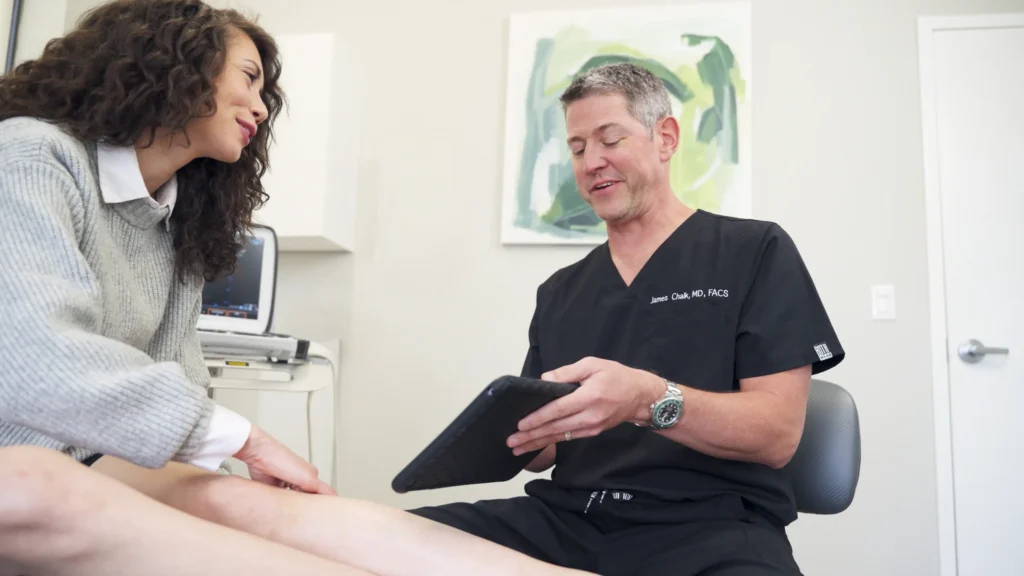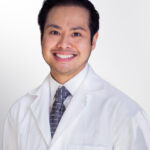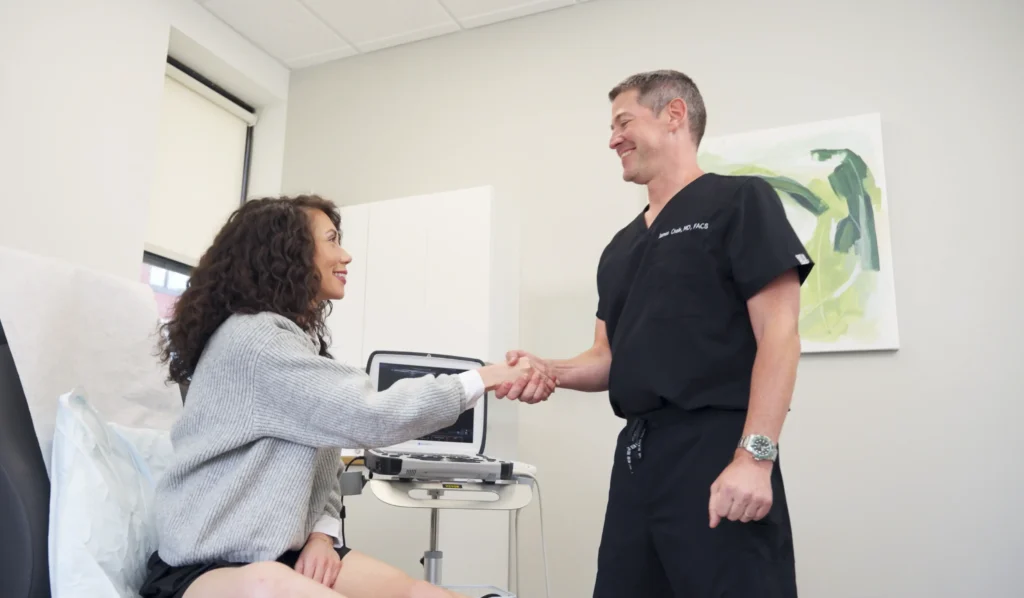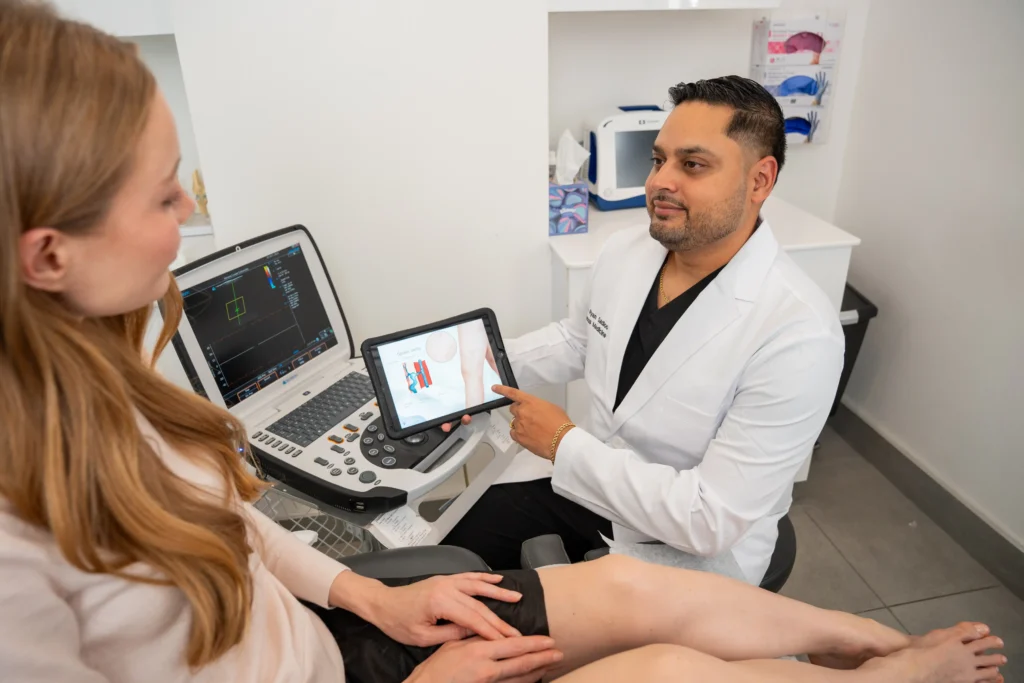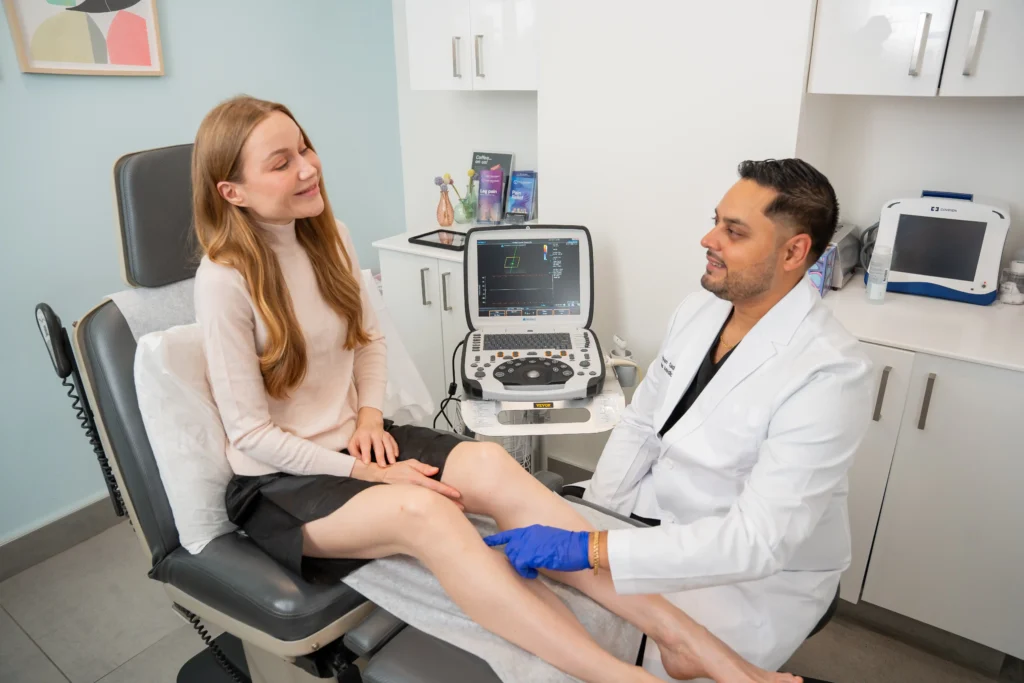Meet Dr. Todd Kobrinski
Dr. Todd Kobrinski is widely considered the best vein doctor in Paramus — that’s not simply our opinion; that’s an objective fact evidenced by unanimous 5-star ratings and reviews from his loyal patients. Quite simply, Dr. Kobrinski’s patients have voted unanimously to grant him perfect ratings, which can only indicate that he maintains a perfect track record and has excellent bedside manners. He is incredibly compassionate and charming and believes your vein treatment process should be emotionally and physically comfortable.
Dr. Kobrinski also has an excellent educational background. He acquired his Bachelor’s and Master of Science degrees from George Washington University and his medical degree from Nova Southeastern University in Florida. He completed eight years of post-graduate training through the Icahn School of Medicine at Mount Sinai St. Luke’s Roosevelt Hospital Center in New York City, which included three years of Residency in Internal Medicine and five years of Fellowships in both Cardiovascular Disease and Clinical Cardiac Electrophysiology.
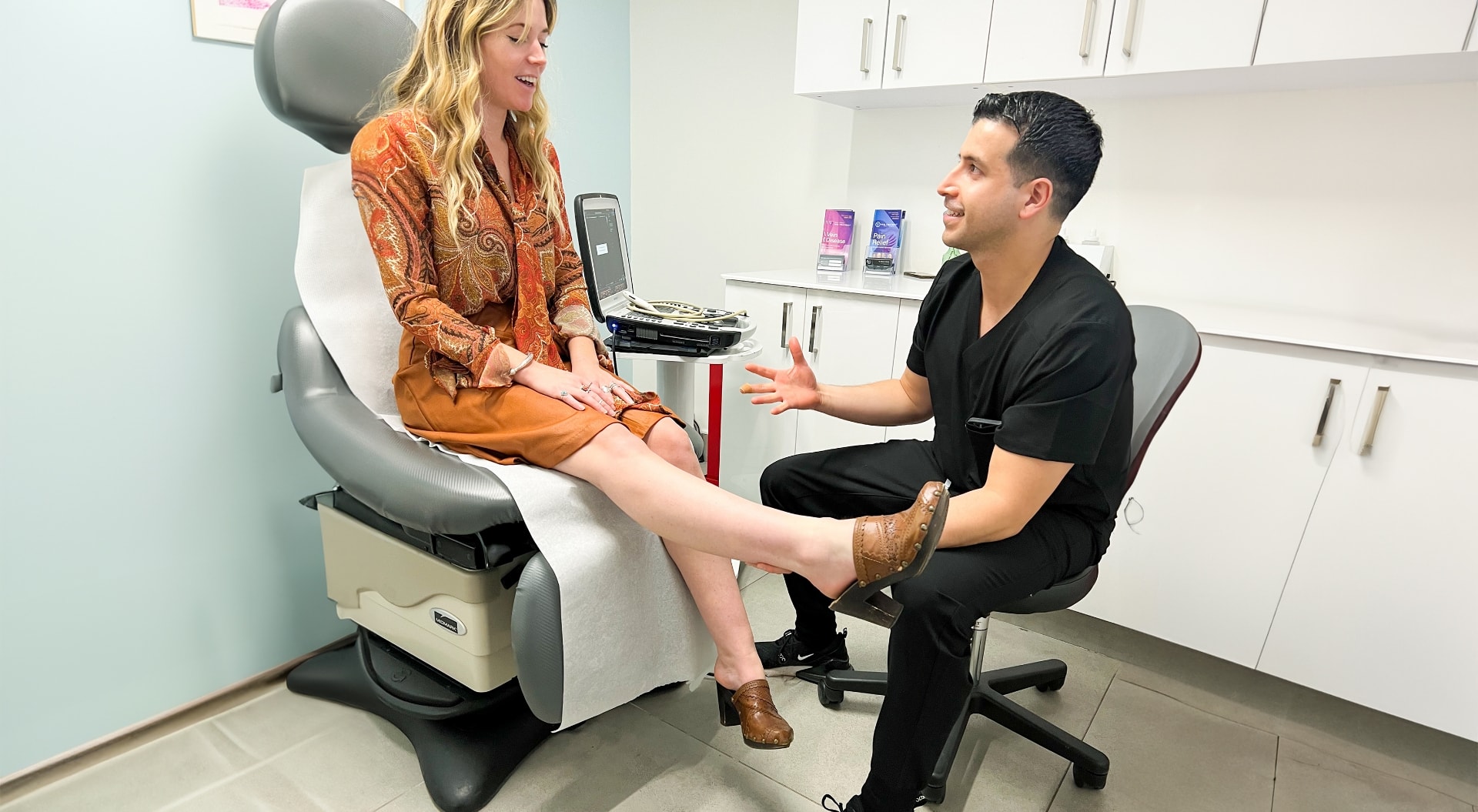
Dr. Kobrinski specializes in venous medicine and cardiovascular disease. Since spider veins and varicose veins are caused by a circulatory disorder, his combination of specializations makes him uniquely capable of identifying and treating the root cause — chronic venous insufficiency. Furthermore, Dr. Kobrinski is offering the latest treatments for spider veins and varicose veins, including radiofrequency ablation, endovenous laser ablation, ambulatory phlebectomy, and sclerotherapy. These are minimally invasive procedures that conclude within an hour with no downtime or complications.
You can find Dr. Kobrinski at our state-of-the-art spider vein and varicose vein treatment center located at 140 NJ-17 #103, Paramus, New Jersey. The vein clinic is just off the Garden State Parkway, right next door to Bob’s Furniture. If you’re in Bergen County, this is the most accessible varicose vein treatment center for you. If you’re in Passaic County, you can also book an appointment at our spider vein and varicose vein treatment centers in Clifton or Woodland Park, NJ.
Below, we answer some of the most common questions about spider veins, varicose veins, and other vein-related subjects.
What are spider veins and varicose veins?
Spider veins and varicose veins are unhealthy veins with excessive blood accumulation. Spider veins are dense clusters of blood vessels that appear just beneath the skin’s surface, whereas varicose veins protrude out of the skin, looking like a dense mass of tangled, twisted, or knotted ropes. Varicose veins are always indicative of chronic venous insufficiency, whereas spider veins aren’t always caused by vein disease.
What is the main cause of varicose veins?
Chronic venous insufficiency is the main root cause of varicose veins and spider veins. Venous insufficiency is a circulatory disorder wherein your vein valves collapse or malfunction. In healthy veins, the valves act as one-way doors to ensure smooth blood circulation towards the heart against the force of gravity. When your vein valves collapse, blood flows backward and accumulates in the leg veins, leading to spider veins and varicose veins.
How to prevent spider veins and varicose veins?
There are no sure means of preventing spider veins and varicose veins because vein disease may occur due to numerous factors. The most common risk factors for venous insufficiency include genetics, aging, hormonal changes, obesity, pregnancy, a history of vein problems, or a sedentary lifestyle and occupation that involves long periods of sitting or standing still. While there are no sure means of preventing vein disease, you can minimize the risk of spider veins and varicose veins with some simple lifestyle changes.
The following lifestyle changes can minimize the risk of spider veins and varicose veins:
- Wear compression stockings regularly to prevent blood from pooling in your leg veins.
- Run, walk, cycle, swim, or do yoga frequently to activate your calf muscles and improve blood circulation towards the heart.
- Elevate your legs while sitting down to improve blood flow towards the heart.
- Avoid sitting or standing still for extended periods of time — take short walking breaks.
- Drink lots of water to stay hydrated.
- Eat lots of fruits and vegetables.
Can varicose veins go away naturally?
No, varicose veins cannot go away naturally because they’re caused by underlying chronic venous insufficiency. If you don’t seek vein treatment, varicose veins will continue expanding and worsening until you eventually experience a varicose vein rupture, which would lead to profuse bleeding.
Can massage improve varicose veins?
Massage can improve varicose veins and alleviate the worst symptoms of chronic venous insufficiency, such as restless leg syndrome, frequent leg cramps, and leg swelling. That’s because massage pushes some of the accumulated blood towards the heart. However, massage only provides temporary relief — you need spider vein and varicose vein treatments to address the root cause of varicose veins.
When should I consult vein doctors?
You should consult vein doctors if you notice any of the signs and symptoms of vein disease. The earliest signs of chronic venous insufficiency include leg swelling, frequent leg cramps, restless leg syndrome, leg heaviness, spider veins, varicose veins, and skin discoloration. If you don’t seek vein treatment, you may eventually experience profuse bleeding, leg ulcers, and deep vein thrombosis (blood clots in leg veins).
Is there any downtime after vein treatments?
Minimally invasive spider vein and varicose vein treatments don’t involve any downtime. You may experience mild tenderness, swelling, and discomfort around the treatment sites, and you’ll have to avoid strenuous activities and heavy lifting for a few days, but you can resume normal activities and work immediately. You will also have to wear compression stockings under your clothes for a few weeks.

